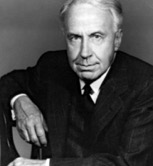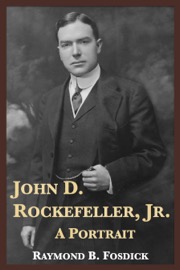
After graduating from New York Law School in 1908, Fosdick worked for the City of New York, soon becoming its top investigator. While investigating white slavery, he met John D. Rockefeller, Jr. (JDR Jr.) who was working with a special grand jury investigating the same issue. JDR Jr. hired Fosdick in 1913 to head up a study for the newly created Bureau of Social Hygiene, a Rockefeller philanthropy working to prevent social ills among the urban poor, including prostitution, venereal disease and crime. Fosdick’s study of European law enforcement was published as European Police Systems in 1916. In 1917 Fosdick studied military training for the US Army and Navy and then served as special representative of the War Department in France and as a civilian aide to General Pershing. After World War I Fosdick became Under-Secretary General of the League of Nations, a position he left in 1920 when the United States did not ratify its membership in the organization.
In 1920 Fosdick returned to the Bureau of Social Hygiene and was a close associate of JDR Jr., serving as his attorney and advisor, and in prominent roles in Rockefeller philanthropies. In 1921 Fosdick became board member of the Rockefeller Foundation, the Rockefeller Institute for Medical Research, the Laura Spelman Rockefeller Memorial, the China Medical Board and the International Health Division. In 1922 he became a member of the General Education Board, and in 1923 a member of the International Education Board. As a trustee of the Rockefeller Foundation, Fosdick played a key role in the Foundation’s reorganization in 1928, and in 1936 was named president of the Rockefeller Foundation and of the General Education Board.
With JDR Jr., Fosdick shaped the direction of the Rockefeller Foundation between 1936 and 1948, a period during which the Foundation contributed substantially to the research and control of malaria and yellow fever, to the modernization of China, to the development of the natural sciences, and started its first programs in the humanities and social sciences, and a revolutionary program in agriculture aimed at expanding crop production worldwide.
Fosdick’s contributions to public service and philanthropy were recognized by many awards, including the Distinguished Service Medal for his war work, and the titles of Commander in the French Legion of Honor and Fellow of the American Academy of Arts and Sciences. He is the author of fourteen books, including The Story of the Rockefeller Foundation and John D. Rockefeller, Jr.: A Portrait.
Click on the cover for details about the eBook:




